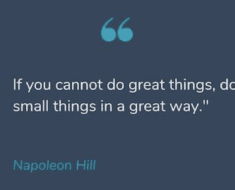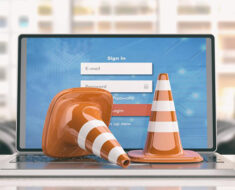
Simplilearn
As technology evolves, life evolves too. This has brought the rise of many different alternatives to ways of living- new jobs, new hobbies and pastimes, as well as new ways of learning. And as great as it is learning and working from home – there’s no commute, you get to exist in your own space and work in a relatively flexible manner, without any annoying distractions created by peers who can’t take their job as seriously as they ought to – there are a few challenges to overcome too.
You are in your home space – a space you probably associate with relaxation and peace, a break from the world, your little piece of yourself. Concentrating in this environment can be very difficult, and as someone who does have the pleasure of working from home, there are many tricks and tips I’ve found to be very useful over the past months. However, it may be difficult to make these changes, so I have compiled a good list of tips and hacks that just might see you through.
Number 1- Organize the space you study in
Now, this one is quite essential when working around the home. Many people are using their dining room table – don’t. It’s a mistake to work somewhere in your home that is in use every day. I would suggest working in a study or an office – somewhere where you aren’t going to be interrupted by family as much. If such a place isn’t available, I would suggest moving a table into a space where it wouldn’t normally be and working with your back to the room. This will enable you to create your own space which only exists while you work, and will also help shut down any immediate distractions that might be part of your environment.
Lighting is very important for work ethic. Really, you want somewhere with good natural light and access to fresh air. If such a place is unavailable, I would suggest working somewhere that has good light and is also reasonably quiet. You may want to pick a space that is also inaccessible to pets if they are likely to interrupt your work. I have a house bunny, and just watching her hop around is enough to take my mind off work.
I would also suggest clearing the space too if you can. Then replace it with things you might need for the time you’ll be sat down – a bowl of fruit for snacks, a bottle or glass of water or a cup of something a bit warmer, a blanket or jumper over the back of the chair you’re sat on for if you get cold, and any papers for notes or studies that you would need to do. I would put my phone behind me or off on the desk behind my laptop or monitor, or not have it near me at all if I could help it.
Number 2- Taking breaks and work time
I would fully suggest you take a break when you come to a natural relax in your working flow. Get up from your desk, go for a walk or top up your drink, then come back in the next five to ten minutes. I would also suggest taking breaks every half an hour to help your brain absorb the information you’ve been taking in. If you are unable to do this, I would suggest stretching in your seat and sitting with your eyes closed for two minutes to let your mind recuperate. It’s difficult to sit in the same spot and stare at the same screen for hours, so I would suggest breaking it up as much as you can so you can work in smaller, more effective chunks. For more tips on how to take effective breaks, click here.
With working time, it’s tricky. I would fully recommend that you have a designated time every day where you sit down and work, but some people are unable to do this due to family or set times for online schooling. Taking rests and working when your brain function is high is very important and affects both the quality and the quantity of your work. For example, my brain function is higher in the afternoon and evening, so I generally spend my morning as I would my evening and work the day backward, as I feel my work improves greatly when I’m working at that pace. However, if you can’t do this and you’re stuck at times when you cannot focus (like me in the morning), I would fully suggest doing what you can and revisiting it later.
Number 3- Change your dietary habits
This one might sound a little strange, but something as small as targeting yourself to drink a glass of water every hour can do wonders for your health and mental welfare. Also, increasing your fruit and vegetable intake can help your brainpower and concentration. I would also advise eating little and often but having a large breakfast, as this will carry you through the day well.
Now, those are some of my tips from personal experience of working from home. Some of them are relatively easy to follow, others might require a little bit of perseverance on your end. Working from home is an absolute delight, but it has many obstacles and issues that you might not have considered. Having a good work ethic when working at home is handy, but it may take you time to develop this if you can’t quite get it right for the first couple of weeks. Have a go, and see what works best for you.
I would wholly recommend that you try as many techniques as possible to try and broaden your range of options, so you can switch them around when your routines become dull and a chore. I would also try to keep clean while working from home, as this will boost morale and help those creative juices flow!
Working from home is great fun, but keeping a high level of concentration is key!









































